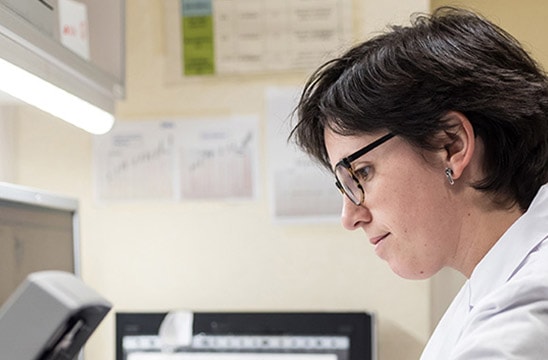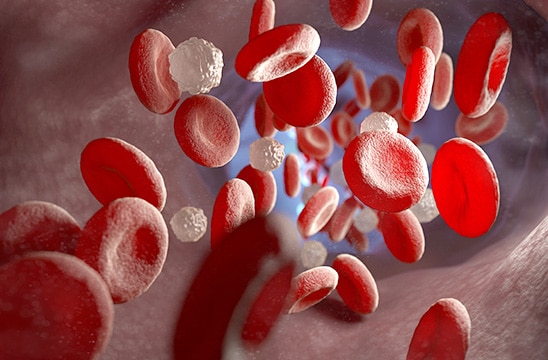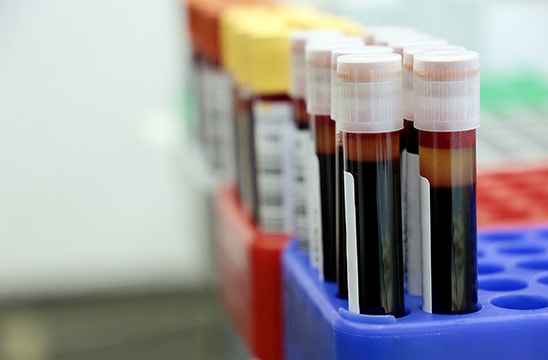必威体育登录手机Agilent announces that it has acquired Resolution Bioscience, a fast-growing provider of next-generation sequencing (NGS)-based companion diagnostics (CDx) test development and registration services for precision oncology.必威体育登录手机The acquisition complements and strengthens Agilent's leadership position in NGS-based cancer diagnostics.
Speeding up the detection of cancer
Resolution Bioscience's non-invasive liquid biopsy assay platform is called ctDx™ (ctDx), the Comprehensive Liquid Biopsy Platform.The assay is performed on a standard blood sample.It detects actionable mutations in genes for identifying cancer and is validated to detect the major types of genetic alterations known to drive cancer.
必威体育登录手机"Agilent's broad expertise, global regulatory and commercial infrastructure, extensive partnerships with biopharma companies, and decades-long leadership in precision medicine will enhance and accelerate our groundbreaking work.
必威体育登录手机"We are excited to further expand the use of NGS in precision oncology for clinical diagnostics as part of the Agilent team."
– Mark Li, Resolution Bioscience president and CEO
ctDx supports both the biopharma services market and the clinical oncology diagnostic testing market and is enabled by Resolution Bioscience's Clinical Laboratory Improvement Amendments (CLIA) certified lab.The platform has been designed for both a centralized CLIA test service and a distributable kit format.In 2020, Resolution Bioscience entered into a commercial partnership with Laboratory Corporate of America (LabCorp) to enable broad access to the Resolution ctDx Lung™ test that detects actionable mutations in genes associated with non-small cell lung cancer.
Liquid biopsy-based assays enable turnaround times in a matter of days rather than weeks for tissue-based assays.As the precision medicine model gains traction, the hope is that this type of testing will enable all cancer patients to get faster access to personalized therapies.

Revolutionizing cancer genomics research
NGS has transformed the life sciences and the field of genomics.With its extremely high-throughput, scalability, and speed, NGS allows researchers to execute a wide array of applications and conduct research into biological systems at levels never before possible.The comprehensive data produced by NGS assists in understanding genomic variations, disease mechanisms, and resistance, helping to develop better diagnostics, and ultimately therapies.
NGS technology has quickly become a core technology supportingthe research of targeted therapy and immunotherapy for cancer.NGS enables the identification of myriad inherited and somatic genetic mutations associated with various disease subtypes, which ultimately enables oncologists to pursue the right treatment plan for individual patients.NGS holds many advantages, such as the ability to fully sequence all types of mutations for a large number of genes (hundreds to thousands) in a single test at a relatively low cost.
Additionally, liquid biopsy-based NGS testing (compared to more traditional tissue-based testing) is increasingly being used for all aspects of cancer detection and management, from early cancer screening to guiding treatment for newly diagnosed patients and early recognition of disease recurrence.The growth in liquid biopsy-based testing is accelerated by the fact that it is non-invasive (only requires a blood draw), repeatable, sensitive, and accurate.The method has the potential to play an essential role in guiding patient treatment, driving the discovery of novel biomarkers, and testing the efficacy of new oncology treatments.
"By adding Resolution Bioscience's liquid biopsy-based diagnostic technologies to our portfolio, we are strengthening our offering to our biopharma customers and boosting the growth of our diagnostics and genomics business.This also accelerates our strategy to broaden access to precision oncology testing for patients worldwide through distributed NGS-based diagnostic kits.
"We look forward to Resolution Bioscience joining with us to expand our work in the fight against cancer together."
必威体育登录手机– Mike McMullen, Agilent president and CEO
Taking it to the next level
The acceleration of discoveries and improved disease insights utilizing diverse NGS experimental methods rapidly translates into new actionable treatments for cancer, which are increasingly supported by CDx assays used for therapy selection.As a result, the oncology-diagnostics-and-treatment journey is becoming more personalized, as an increasing number of treatments include a CDx test on their labels.
There are still many challenges to be addressed, including expanded ranges of biomarkers, even faster turnaround times, and more sophisticated software tools for data analysis and interpretation.Indeed, companies that can expediently address these obstacles will be pivotal in the quest to translate NGS discoveries more quickly to benefit cancer diagnosis and treatment.
A compelling combination
必威体育登录手机Over the last two decades, Agilent has leveraged technology in immunohistochemistry (IHC) and fluorescence in-situ hybridization (FISH), supported by comprehensive global regulatory and commercial capabilities to support biopharma companies toward the development of anatomic pathology-based companion diagnostics.必威体育登录手机Agilent has become a leader within the oncology CDx-biopharma-services market, as evidenced by partnerships with some of the largest oncology pharmaceutical companies in the world.
Similar dedication has enabled Resolution Bioscience to partner with pharmaceutical companies to offer NGS-based services for biomarker discovery and support clinical trials.必威体育登录手机The combination of Resolution Bioscience's non-invasive liquid biopsy platform with Agilent's capabilities in NGS-based cancer diagnostics and leadership in tissue-based companion diagnostics, delivers leading-edge, innovative technology and comprehensive workflows to serve the needs of the fast-growing precision medicine market.

A background in liquid biopsy
Cells within the body are continually being recycled.Cellular DNA is released into the peripheral bloodstream, becoming cell-free DNA (cfDNA).Cancer tumors also shed DNA into the bloodstream.Unlike healthy cells, this DNA carries genetic mutations, and some of these mutations are responsible for the malignancy.This circulating tumor DNA (ctDNA) may be less than 0.1% of all the cfDNA.Therefore, it is harder than looking for a ‘needle in a haystack', it's looking for one slightly different needle in a large pile of needles.
Overview of the Resolution Bioscience Platform
The process starts with a standard blood draw – a liquid biopsy.The cfDNA is extracted from the plasma for analysis by the Resolution platform.
The platform is capable of comprehensively profiling samples for large numbers of mutations.In addition, this NGS-based method is able to detect different genetic mutation types, including single nucleotide variants (SNVs), insertions and deletions, copy number variations (CNVs)/amplifications, and gene fusions/translocations.Notably, the platform can also detect fusions without any prior knowledge of the fusion partner or specific genetic breakpoint.
The platform is also designed to enable multiple patient samples to be processed on a single desktop sequencer run, allowing morecost-efficient analysis.

The mission continues
必威体育登录手机Focusing on improving patient outcomes is an essential part of how Agilent will fulfill its mission of improving the human condition.Partnering with Resolution Bioscience will enable even more impactful solutions to be developed, encompassing precision medicine's extreme power.